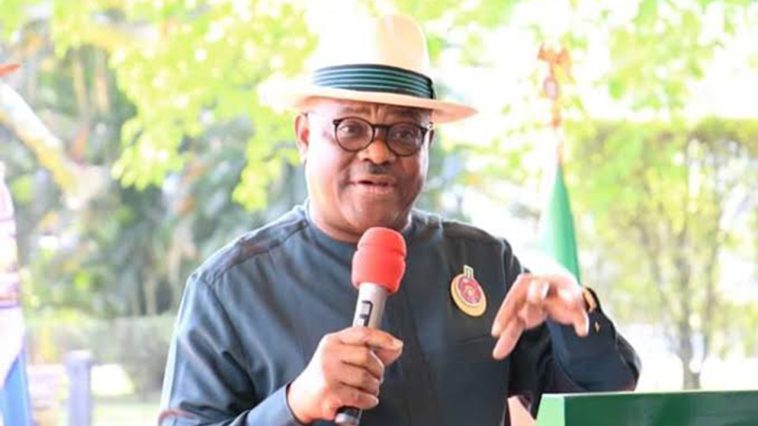By Mike Omeri Ph.D., OFR
Rarely do I find myself compelled by emotions stirred by the sights and sounds of bustling construction equipment lining the streets of Abuja. Yet, here I am, reflecting and voluntarily commenting on the remarkable resurgence of our nation’s capital under the stewardship of Minister Nyesom Wike and not his politics.
Abuja, once a beacon of promise, had faltered in its stride during the preceding eight years, marred by neglect and dashed dreams. The streets were spluttered by potholes, the air was fouled, oozing unpleasant odour from garbage due to neglect, and the landscape littered with abandoned projects and filth. Residents and visitors alike lamented the city’s decline, a city once dubbed “the city for Africa” out of admiration, and a testament to its beautiful landscapes and well paved roads, became a sorry sight to the dismay of visitors, residents and concerned Nigerians.
However, with Minister Wike’s appointment in late 2023, a new dawn broke over Abuja. His inaugural address left no one in doubt about his intentions: to revive and restore our capital to its former glory. He was characteristically brash and shot from his state of mind. He toured and talked some more, ordered and revoked, sacked, and warned! Not used to this kind of ministerial display of authority that targeted the perceived untouchables of our nation also, he was soon to be marked with a stigma and referred to as “Wicked Wike,” a moniker that now rings with admiration for his boldness and determination through his actions.
Minister Wike’s crackdown on illegal property ownership and commitment to reclaiming abandoned lands signalled a departure from past complacency. His unwavering stance, despite resistance from vested interests, has clearly set a new high for governance in the FCT.
Under his leadership, Abuja is witnessing phenomenal shift, swift, and remarkable transformation of road infrastructure and markings everywhere in the city. This development paradigm has upped the ante and gained momentum. Today the city has become better for it. Residents, once disillusioned, now speak of a revitalized Abuja with hope and optimism under the Wike legacy as minister and the government’s attention to the window to Nigeria.
Esther Mathew, a resident, aptly captures the sentiment, proclaiming, “Abuja is now a beauty as the contruction we see gives us hope that our turn for uplift might just be next.” Indeed, Minister Wike’s track record in his previous position speaks of some pragmatic approaches to development earning in the process several sobriquet such as “Mr. projects, an entertainer, and a goal getter,” encouraged from unlikely quarters and condemned by familiar voices contradistinctively.
Despite facing opposition and scepticism, Minister Wike appears to remain undeterred in his mission. His commitment to prioritizing impact over entrenched interests has endeared him to many subsequently in this area of contributions to nation building even if you question his politics.
As observers of the transformation underway in Abuja under the leadership of Minister Nyesom Wike and his team, it is evident that while progress has been made, there are still areas that require urgent attention. One such area is the need for a more robust approach to green spaces, fight against health tormenting rodents and insects, as well as use and control of pedestrian walkways.
It’s concerning to witness vehicles encroaching upon pedestrian walkways, most times leading to people being knocked down and endangering the safety of pedestrians of all ages and purposes. Additionally, the attitude of shop owners spilling onto roads and walkways not only obstructs the flow of traffic but also contributes to urban congestion and hold-ups on many Abuja streets and roads.
As a concerned citizen, I urge Minister Wike to prioritize initiatives aimed at enhancing green areas and ensuring the safety and accessibility of pedestrian walkways. Creating well-maintained green spaces not only adds aesthetic value to the city but also toward earning carbon credits. Only this time, trees planted should not be those with roots strong enough to uproot buildings and break the roads as abound now. Perhaps they can be replaced with food trees.
Furthermore, implementing measures to prevent vehicles from illegally accessing pedestrian walkways and enforcing regulations against encroachment by shop owners will go a long way in improving the overall functionality and safety of Abuja’s urban landscape.
Minister Wike, as you continue your sojourn in transforming Abuja into the world-class city it deserves to be, I implore you to heed this call and take action. By doing so, you will not only fulfil the dreams you have for our capital but further ensure a safer, more sustainable development roadmap for the future and for all.
No doubt, Minister Wike’s tenure serves as a beacon of progress, reminding us that with visionary leadership and unwavering commitment, any city can rise from the ashes of neglect to reclaim its rightful place on the global stage.
Wike is indeed working, and his efforts at transforming Abuja into a world-class city we can all be proud of stand tall as Zuma rock in Niger state or Wase rock in Plateau state.






